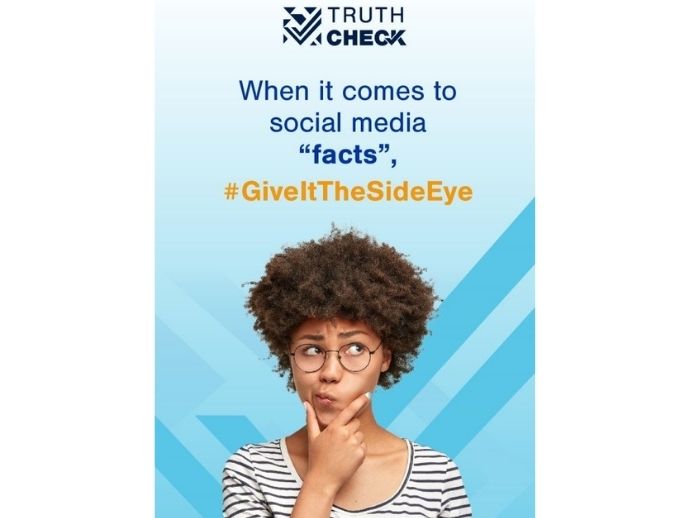
A new nationwide questionnaire reveals that a majority of African American adults believe that social media is the No. 1 source of misinformation about COVID-19 vaccines, and that false information intentionally targets the Black community.
The insights, released today by The Center for Black Health & Equity (The Center), a national nonprofit organization that facilitates public health programs and services to benefit communities and people of African descent, reviewed responses by 791 African American adults between the ages of 18 and 54, and discovered:
- The top five most-frequented sources for COVID-19 vaccine information are: the news (48 percent), internet (43 percent), social media (39 percent), family and friends (35 percent) and doctors (35 percent).
- When it comes to feeling confident that they are getting accurate information about the COVID-19 vaccine, 33 percent of the African Americans questioned say they completely trust their doctors to provide the information, and 18 percent completely trust their family and friends. Social media ranked last of the choices, with only 6 percent of participants saying they trust online platforms completely to provide accurate information.
- The top three sources believed to be primarily responsible for sharing misinformation about the COVID-19 vaccine targeted to the Black community are social media (27 percent), the news (25 percent) and internet (15 percent).
- Nearly seven-out-of-ten (69 percent) believe that targeting all Americans with misinformation about the COVID-19 vaccine is somewhat to very intentional.
- 60 percent admitted they have shared information they learned on social media with family and friends, and about a third (35 percent) reshared it on their own social media platforms.
“This practice of receiving and sharing misinformation amplifies health disparities and harms the Black community, which is already dying from COVID-19 at disproportionate rates,” said Delmonte Jefferson, executive director for The Center. “Truth Check aims to correct this contagious spread of inaccurate and false narratives.”
The Center has launched TheTruthCheck.org, an online resource to provide African Americans with social media literacy and fact-checking skills needed to avoid the influence of misinformation regarding the COVID-19 vaccine. To learn more about the campaign and how to spot misinformation on social media, visit TheTruthCheck.org.
Funding for the initiative was made possible through a subaward from the CDC Foundation and is part of the Centers for Disease Control and Prevention (CDC) of the U.S. Department of Health and Human Services (HHS) financial assistance award totaling $25,660,048 with 100 percent funding from CDC/HHS. The contents are those of the author(s) and do not necessarily represent the official views of, nor an endorsement by, CDC/HHS or the U.S. Government.
About The Center for Black Health & Equity
The Center for Black Health & Equity (formerly NAATPN, Inc.) is a national nonprofit organization that facilitates public health programs and services that benefit communities and people of African descent. The Center is committed to addressing social, political and economic injustices that have marginalized communities and contributed to current health disparities. The Center provides a level of expert comment, research and education that has resulted in cities and institutions adopting smoke-free policies and flavor restrictions. Currently, the organization applies its proven framework for policy and environmental change to work in HIV/AIDS, cancer, heart, diabetes, COVID-19 and other health disparities.
*Atlanta-based V&L Research and Consulting, Inc. conducted a national questionnaire between Dec. 14 – 20, 2021. The online questionnaire, offering multiple choice answers, was conducted among a national sample of 791 African Americans, 59 percent Black females and 41 percent Black males. Credibility interval of +/- 3.48%.